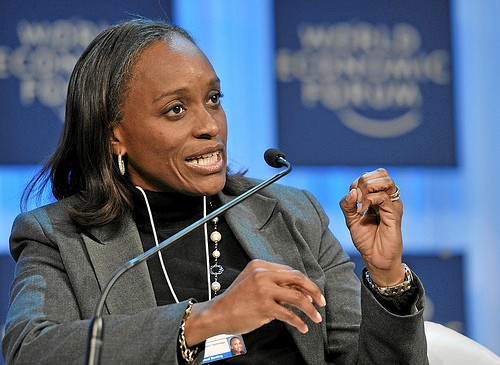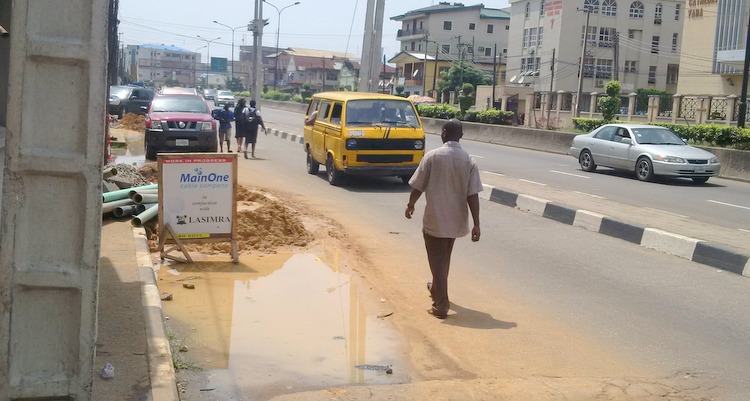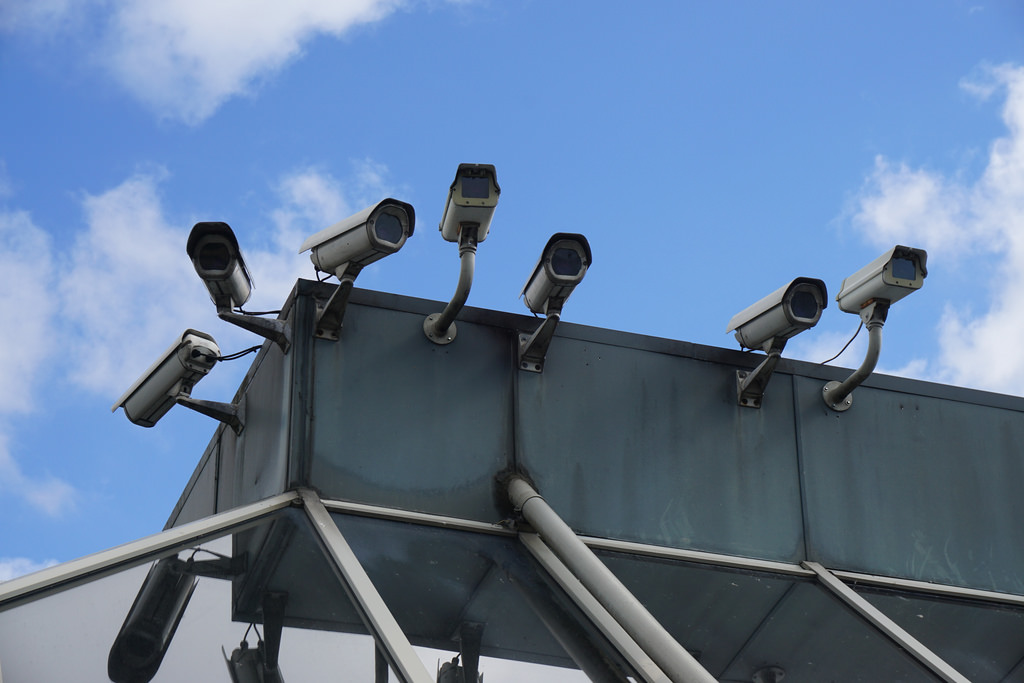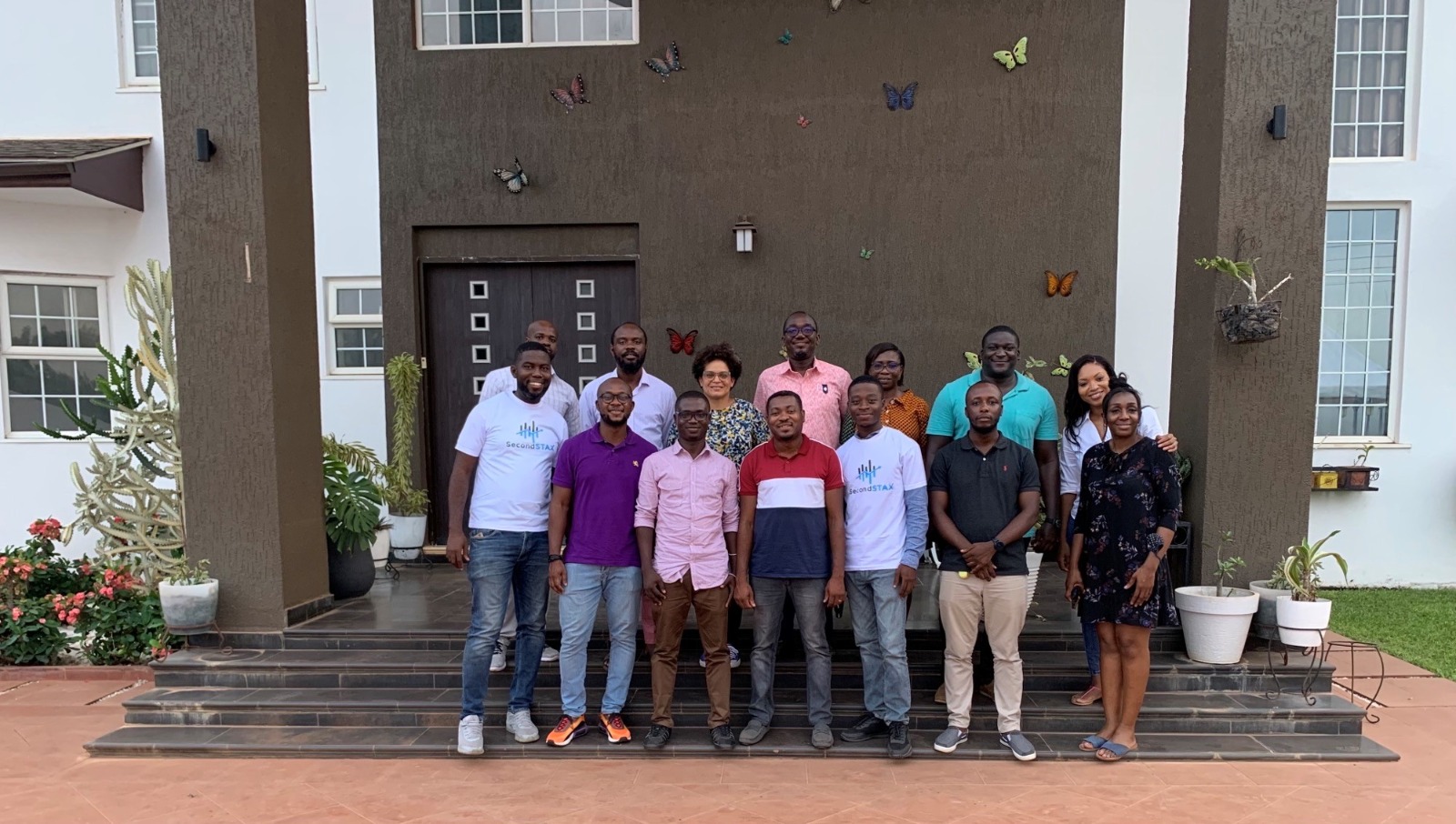In 2014, Omobola Johnson, the former minister for Communications Technology, highlighted the importance of broadband penetration on Nigeria’s Gross Domestic Product. “[In 2014], the ICT sector contributes just over 8% to GDP. If we achieve our targets of a five-fold increase in broadband penetration by 2017, from 6% to 30%, we will deliver through broadband, a phenomenal 3% increase in GDP,” Johnson explained.

The plan the former minister mentioned is the Nigerian National Broadband plan, which is a five-year strategy to drive the penetration of internet access. On the 20th of September, 2012, the former president of Nigeria, Goodluck Jonathan inaugurated the Presidential Committee for a national broadband strategy and roadmap. The committee was borne out of the need to assist the private sector to provide Nigerians with quality access to broadband.
The Presidential committee co-chaired by Dr. Ernest Nduka (former Executive Vice Chairman of the NCC) and Mr. Jim Ovia, (the founder of Zenith Bank), had 15 members, who represented various stakeholder groups in the ICT sector. They were mandated to develop a strategy that mirrored the government’s goal of making broadband accessible.
Although the five-year plan (2013-2018) was ready in 2013, filled with short and long term goals, it is yet to be implemented. Jonathan, after he received the report from the Committee in Abuja pledged to give his support to ensure Nigeria’s integration into the global digital communications network. He assured those present that “the report will be adopted by government and implementation will begin immediately because our people are hungry for information and we are in a hurry to fully integrate our country into the digital communications age.” However, little was done about the report till the former President’s administration was over.
As of 2015, Nigeria was ranked among countries with the lowest broadband penetration in the world. Out of the 189 member states in the International Telecommunications Union (ITU), Nigeria ranked 130 with 11.7% mobile broadband subscription, while its fixed broadband subscription is non-existent. This figure is far below the Committee’s 21% projection for that year.
How's ICT/Broadband faring in Buhari’s Administration?
Prior to the swearing in ceremony of Muhammadu Buhari as the President in Nigeria, some experts urged him to pay attention to the ICT sector. The soon-to-be president was admonished to revisit and implement the National Broadband Plan in order to improve the country’s digital economy target. The Managing Director of Smile Communications, Michiel Buitelaar, explained the benefits the country stands to reap with the influence of ICT.
“We do believe the new digital ICT will influence other sectors. For example, in agriculture; like I have seen in other countries, the efficiency and productivity are likely to explode once all the digital economy has entered into their arena. It is also our expectation that the impact will become more pronounced within the next ten years.” Buitelaar explained while extolling Jonathan’s administration for implementing the National Broadband Plan.
Since the advent of the new administration, most stakeholders in ICT industry were disappointed as it appears that President Buhari is not taking the sector seriously. He seemed to step on more toes when he appointed the Minister for Communications (as opposed the Minister for communication technology) Not a few wondered about the development.

However, both the President and his vice, Yemi Osibajo, have emphasized the need to use ICT in governance to drive the 'change' agenda. Recently, the President noted that ICT has the potential to contribute an additional 30% to the country's GDP within four years. In a follow-up, Osibajo claimed that the age-old corruption in the public service sector could be curbed with the use of ICT. So if ICT has this miracle working power, any wonder why the National Broadband is not taken seriously?

Be the smartest in the room
Give it a try, you can unsubscribe anytime. Privacy Policy.
In recent times, government officials and economic experts have stressed the need for the country to diversify. If the ICT sector has the capability to drive the country's success ( as it has been verified), then it's worth a try. And at the very least, the government should give the broadband plan a chance.
Why the National Broadband Plan may not see the light of day
Lack of Accountability
One of the major hindrances to success in the ICT sector is accountability. Who holds the ICT players accountable? Who cross-checks these figures and claims by the NCC?
Recently, the Vice-Chairman of the Nigerian Communications Commission (NCC), Umar Danbatta reportedly said that broadband penetration in Nigeria has reached 20.95%. The figure quoted by Danbatta was from the Broadband Commission for Sustainable Development, an arm of the ITU.
However, just a few weeks before, Danbatta noted that "Nigeria has moved from 10% broadband penetration to 14%." He made this claim during the announcement of Nigeria's participation at the ITU Telecoms World 2016. The assertion that broadband penetration in Nigeria is 14% was also backed by the former minister and Chairman of the Alliance for Affordable Internet, Omobola Johnson.
The discrepancy in the figures quoted by the Danbatta calls for accountability concerns. What are the parameters that were used to rate broadband penetration in the country?
Policies and Regulations
Vague and uneven policies and regulations equate to bureaucratic bottlenecks, which poses a threat to broadband penetration in the country.
TechPoint.ng reached out to Gbenga Sesan, the Executive Director of the Paradigm Initiative Nigeria (PIN). Gbenga was one of the 15 members who developed the National Broadband Plan.

According to him, "the plan was very clear on what needs to be done and was deliberately not made to rely too heavily on government action. However, policy environments are determined by the government and this affects even private sector action." In his opinion, there are four things against the National Broadband Plan implementation and they are - Right of Way, Licences, Investment and Political will.
Right of way
Gbenga stated that the plan worked on resolving the right of way challenges (especially cost and arbitrary charges by states) and the former minister did some follow-up work by getting states and the Ministry of Works to talk. However, he suggests that 'talking' is not enough. It needs more attention:
"There's no point being uncoordinated and charging each telco an arm and a leg. A way to go is to waive some fees for anyone willing to lay fibre and also leave channels that others can use later without the need to dig up roads again."
Telcos often complain of high tariffs and other challenges like the right of way. In 2013, CcHub partnered with MainOne cable to birth the i-HQ project.

However, that project would not have seen the light of day without the help of the Lagos State government. Since the project involved high-speed internet fibre in Yaba, the Lagos State government waived the right of way and authorised MainOne to lay its cables. This is the type of collaboration which can exist between the private and public sector when there are no regulatory impediments.
Licensing
Licensing has been a bit confusing in Nigeria, Gbenga says. "For example, regional Infrastructure Company (InfraCo) licenses were issued and then delayed again. NCC is working to resolve this confusion but this has led to some delays." The delay in issuing licenses to telcos does not aid broadband penetration in the country.
Investment
In Gbenga's opinion, the Global Systems for Mobile communication (GSM) became wildly successful in Nigeria, only because it was able to attract investment. He regards Broadband as the modern-day GSM. However, it has not been able to attract many investors. Gbenga suggested that this because "the economy has been quite confusing to investors. This has affected implementation of the plan, which of course comes at a cost to the private sector."
Political will
"From Jonathan to Buhari, Nigeria is yet to see a broadband champion. Just think of Rwanda's Kagame (in terms of broadband, not style of governance) and you'll see what sort of champion Nigeria needs for the broadband plan to become reality." - Gbenga Sesan.
Rwandan president, Paul Kagame has been praised for his effort in promoting broadband penetration. In 2014, he was honoured by the ITU for his leadership in the advancement of ICT in Rwanda.
Mr. Sesan reasons that political will is the major reason why the National Broadband Plan is yet to be implemented. The government needs to throw its weight behind this project to make it a reality.
However, in spite of all these challenges, the PIN director is of the opinion that by 2018, broadband penetration will be at 30%.
"Now at 20 percent broadband penetration, Nigeria will -- in spite of government tardiness around this issue -- achieve 30%, especially with recent competition that 4G LTE deployment has brought to the telco space. Of course, the NCC's decision to scrap data floor pricing has helped a lot too."
He was quick to add a warning, though. "The problem is that 30% mobile broadband penetration isn't the same thing as 30% terrestrial (fibre, etc) plus mobile broadband.
We must not miss the opportunity to build Nigeria's future broadband infrastructure with terrestrial focus Mobile has limitations, so let's make sure the fibre footprint in Nigeria spreads wider and faster, and as the plan suggests, growth won't rely on mobile alone," he admonished.
Photo Credit: FirasMT via Compfight cc





















